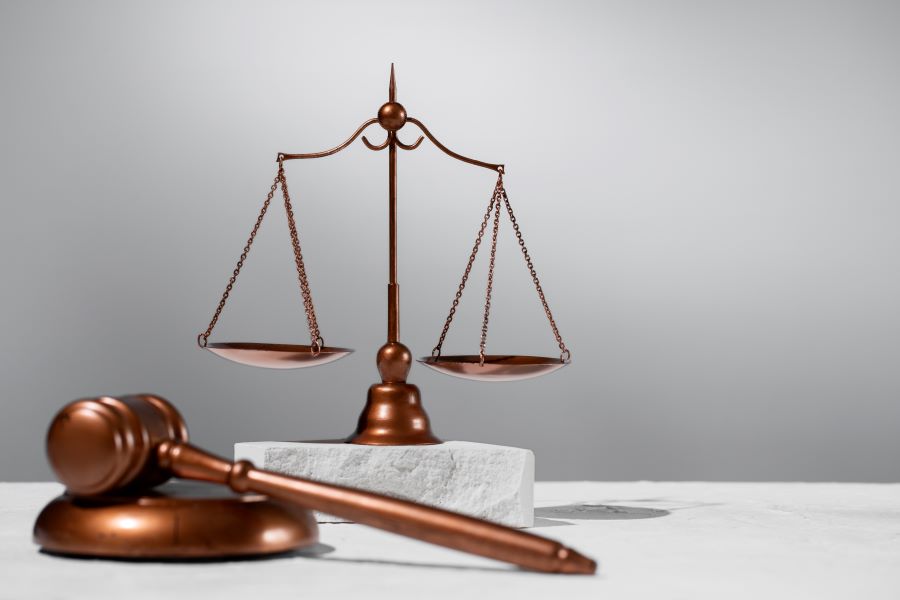Sustaining an injury due to someone else’s negligence is a challenging ordeal. The road to recovery can be full of physical pain. It also has emotional distress and financial challenges.
Going through the personal injury claim process will help you get compensation. This includes payment for medical expenses, lost wages, and other damages. We’ll help you understand this process. Then, you can make better decisions and get fair pay.
Personal Injury Claims in Oregon
In Oregon, personal injury law covers many cases. These include car accidents, slip-and-falls, workplace injuries, etc. State laws regulate the claim process for personal injury cases. They cover reporting the incident and seeking compensation.
The statute of limitations dictates how long someone has to file a claim. It’s generally two years from the injury. Knowing the requirements helps victims. It lets them navigate the legal maze and avoid traps.
Steps in the Personal Injury Claim Process
Initial Assessment
The first step involves evaluating whether you have a valid personal injury claim. Determining fault is crucial because Oregon follows a comparative negligence rule. If your negligence exceeds 51%, you won’t receive compensation. An assessment includes reviewing accident details. It also includes medical records and the injury’s impact on daily life.
Seeking medical attention
After the accident, seek immediate medical attention, regardless of the injury’s severity. Documenting medical treatment and getting records support your personal injury claim. Insurance companies may argue that your injuries aren’t serious.
They may also say they didn’t result from the incident due to a lack of timely medical attention. Always follow the prescribed treatment plan and attend follow-up appointments.
Reporting the incident
Reporting the incident to relevant authorities is vital for building a strong case. In car accidents, file a police report. Also, exchange insurance details with the other driver. For workplace injuries, notify your employer immediately. Filing accurate and timely reports provides key documentation. It helps show fault and how severe your injuries are.
Consultation with a Personal Injury Attorney
Talking to a personal injury attorney offers valuable insight. They can tell you about your rights and options. Personal injury lawyers specialize in these cases. They help find the liable parties, assess damages, and negotiate with insurers. An attorney can tell you whether to accept an initial settlement. Or they can tell you whether to pursue further legal action.
Investigation of Your Claim
A thorough investigation follows the initial consultation. Your attorney will gather evidence. This includes photos, witness statements, police reports, and medical records. One may consult expert witnesses, such as accident reconstruction specialists or medical professionals. The claim process also involves assessing property damage in car accident cases. Your attorney will then build a strong case. They will use it for settlement talks or court.
Filing the Claim
When pursuing a personal injury claim, notify the at-fault party’s insurance company. Contact the claims department. Provide details like the accident date, location, and the parties involved. Submit medical records and relevant documentation to establish the extent of the injury. Keep thorough records of communication with the insurance adjuster for future reference.
Differences between filing an insurance claim and a lawsuit
There are key differences between filing an insurance claim and a lawsuit.
You negotiate with the at-fault party’s insurer in an insurance claim. Negotiating a settlement involves gathering evidence. You must present a strong case and respond to the insurer’s counteroffers. If negotiations fail, you can then proceed to file a lawsuit.
Filing a personal injury lawsuit makes the claim formal in court. It allows you to call witnesses, obtain documents, and strengthen your case. The court then assesses the evidence and decides the claim’s outcome.
Filing deadlines (Statute of Limitations in Oregon)
In Oregon, you must file personal injury claims within a set timeframe. The statute of limitations for most injury cases is two years from the date of the injury. Delays can hurt the claim process for personal injury cases. They can cause a loss of rights to compensation.
Consult with a qualified attorney. This is to ensure you follow the time limit. Some exceptions exist. They include cases with minors or where the injury wasn’t immediately clear.
Negotiation Process
After filing a personal injury lawsuit, negotiations often continue with the insurance company. Begin with a demand letter outlining the injury, liability, and desired compensation. The insurer may counter with a lower offer. Use medical records, accident reports, and expert testimony. They will justify your claim and boost its value. Be patient and firm. Adjust your expectations if needed. Emphasize your willingness to go to court if negotiations stall.
The Litigation Process
Should negotiations fail, the litigation process begins. The personal injury claim process is more formal when filing a complaint. This document details the incident and the damages sought. The defendant receives a summons, which mandates their response. Discovery follows, allowing both parties to exchange evidence and build their arguments.
Depositions are a significant part of discovery, requiring witnesses to provide sworn testimony. Medical records are crucial, as they detail the nature and extent of injuries. Legal teams analyze accident reports, interview witnesses, and consult experts. This stage can be lengthy and complex, but thorough preparation strengthens your case.
Mediation or arbitration may resolve disputes without trial. Both involve a neutral third party guiding discussions toward an agreement. If mediation or arbitration fails, the trial begins. Each side presents its case before a judge or jury, and the court issues a verdict.
Resolution of the Claim
Personal injury cases are usually resolved through negotiation or a court decision. If there is a settlement, the insurer pays. You give up your right to more legal action about the incident. In court decisions, the judge or jury decides who is liable. They also decide on compensation based on the evidence.
The judgment often includes compensation for medical expenses. It also covers lost wages and pain and suffering. However, collecting payment may require extra steps. This is especially true if the defendant lacks enough insurance. A garnishment or lien may help recover the awarded amount.
The judge’s decision depends on the injury’s severity. It also depends on the strength of the evidence and the parties involved. Knowing what to expect and how to respond will help you. With that, you can navigate the injury claim process. You can also achieve a good outcome.

Possible Outcomes and Compensation
The claim’s outcome can lead to many forms of compensation. This depends on how bad your injuries are and what caused them. Here’s what you might expect:
Medical Expenses
Compensation covers current and future medical bills, rehabilitation, and related healthcare expenses.
Lost Wages
If your injury forced you to miss work, you could get payment for lost income. You could also get payment for potential future earnings.
Pain and Suffering
You may receive compensation for physical pain. You may also get it for emotional distress and reduced quality of life.
Property Damage
You’re entitled to money if the accident damaged your vehicle or property. It’s for fixing or replacing it.
Punitive Damages
Courts may award punitive damages in cases of extreme negligence or malice. They punish the responsible party.
Tips for Managing Your Claim
Taking proactive steps can affect the success of pursuing a personal injury claim. Here are some tips that you should follow to avoid unnecessary incidents during the process:
- Visit a doctor immediately after the accident, even if you feel fine.
- Save all medical bills, receipts, and documentation related to your injuries.
- Record conversations with insurance representatives and keep emails organized.
- Note any changes in your health and daily routine.
- Be clear and concise when communicating with insurance adjusters.
- Avoid discussing your case publicly or on social media.
- Choose a lawyer with a proven track record in similar cases.
If you live in or near Portland, seek the help of Portland personal injury lawyers. They will guide you through the process of a personal injury claim well and fast.
Keeping thorough records
Maintaining comprehensive records is a must when pursuing a personal injury claim. The documents are critical evidence. They help your attorney show the full extent of your damages. Here’s a list of records you should keep:
- Medical records and bills
- Treatment plans and progress notes
- Lost wages and income impact
- Accident scene evidence
- Correspondence and communication with the medical providers, insurance companies, and defendant’s representatives
- Receipts and miscellaneous expenses
- Witness statements about what they saw
Communicating effectively with all parties involved
Work with your attorney and provide regular updates on your condition. Respond to requests for information from the insurance company and healthcare providers. Avoid speaking with the defendant’s representatives without your attorney present.
Hire the Best Personal Injury Attorneys in Oregon
Understanding the personal injury claim process helps set realistic expectations. It also ensures a smoother journey to fair compensation. Your attorney will support you. They will fight for your rights in the claim process. Filing a personal injury claim may seem hard. But, a knowledgeable legal team will be your best ally.
Contact our personal injury attorneys today. Get the best legal help in Oregon.





